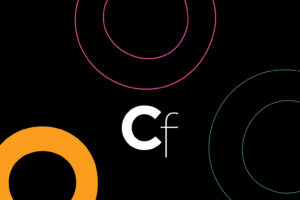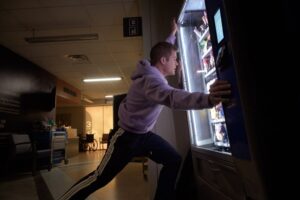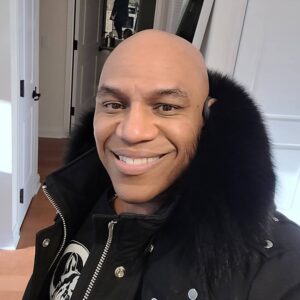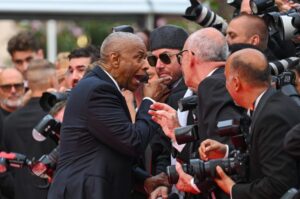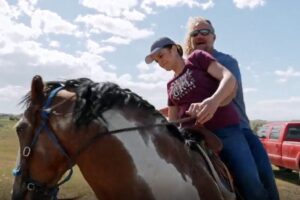Massive Artwork for Trans Visibility Unveiled on National Mall
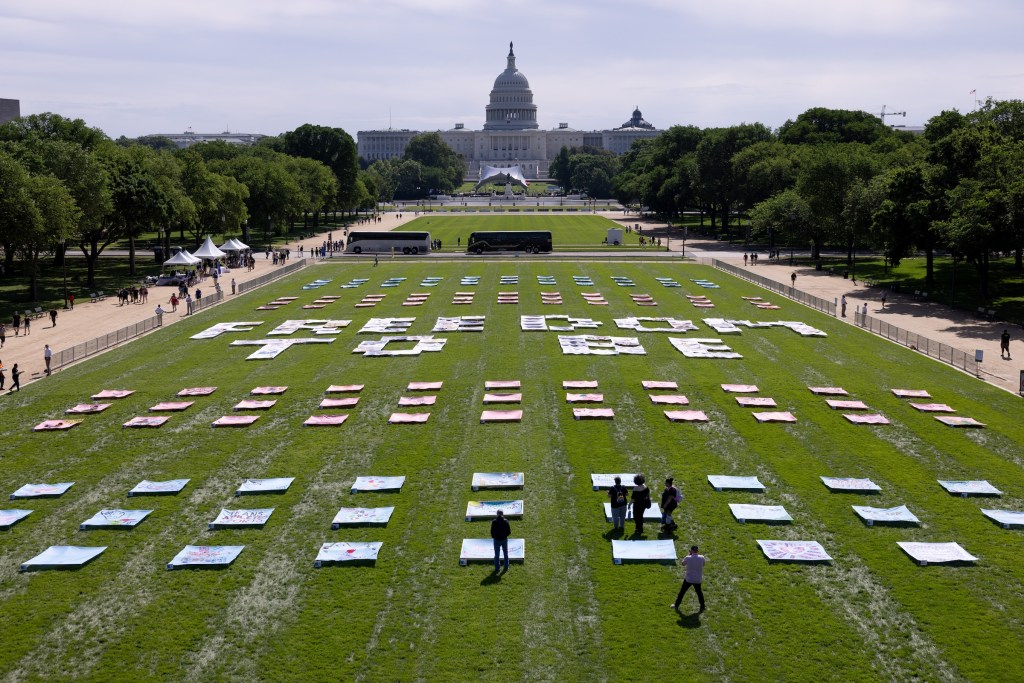

Nearly 260 quilt panels lined the National Mall on Saturday, May 17, spelling the message “Freedom To Be” as part of a temporary installation celebrating trans joy and resilience. Organized by the American Civil Liberties Union (ACLU), the display of six-by-six foot panels recalled the 1987 NAMES Project AIDS memorial quilt presented at the same location. The artwork was unveiled as the ACLU challenges a Tennessee ban on gender-affirming health before the Supreme Court.
Among the panel artists is Alexander Brodie Switzer, a transgender man living in Tucson, Arizona. On a video call earlier this month, Switzer said he was packing up his home.
“I got an RV, so the plan is to go to one blue state, and then if I have to leave again, I don’t have to sell all my stuff,” Switzer told Hyperallergic. “I’ll be able to hop around … in blue states, and see where feels the safest.”

Switzer has been distributing chest binders, a gender-affirming garment sometimes worn by trans-masculine people, to individuals 24 years old and younger in Arizona and beyond since 202o. He began his distribution efforts with a $500 GoFundMe that helped kickstart the organization Valid USA, which later expanded to partner with local health centers and school districts. For some time, Switzer said, his organization was partially funded by grants that the Trump administration has since terminated. But Switzer said he hopes to continue distributing items in other states once he moves.
“We have to reassess the safety of it. It’s not the same as it was,” Switzer continued.
As Switzer prepares for an uncertain future and considers the implications of LGBTQ+ advocacy in an increasingly fraught landscape, he sent a piece of trans pride to Washington, DC, this past weekend: a quilt panel depicting a self-portrait with his dogs.
The painted scene commemorates the first time he took his shirt off at the beach post-top surgery, Switzer explained. At the bottom of the square, Switzer included a timeline of his journey, beginning with his coming out as trans and marking receipt of a passport with an “M” marker for gender, top surgery, and the adoption of his two dogs.

The creator of the “Freedom to Be” project, Abdool Corlette, who is the head of brand for the ACLU, told Hyperallergic that trans individuals from 35 states and DC participated in the installation over the last year, including during quilt-making events held at the Brooklyn Museum, in rural church basements, community centers, and other spaces.
The ACLU asked participants to answer the question, “What does freedom mean to you?”
Switzer said freedom to be, for him, was being a “good dog dad” and “sharing love with these creatures.”
He painted the work last spring, under a different administration, and initially planned to attend the unveiling of the temporary monument on the National Mall, but said he was afraid his travel documents would be suspended.

Russ Toomey, who is a professor of family studies and human development at the University of Arizona, also said he wasn’t feeling as safe traveling as he once did.
Toomey, who sued Arizona in 2019 for not covering gender-affirming care for state employees, also sent a quilt panel to Washington, DC, on Saturday, though he couldn’t attend the event in person.
With his partner, Toomey and his four children lay down on the quilt and traced their outlines, arms hinged upward to mimic the shape of the Saguaro cactus, a particularly hardy desert plant.
“Saguaro [cacti], like all nature, survive because they’re tapped into each other, and they’re talking to each other through their roots and help keep each other safe,” Toomey said.
While Toomey is no stranger to activism, painting the quilt panel was the first time since his undergraduate days that he had used art to convey a political message.
When asked what was giving him hope right now, he said he wasn’t feeling very optimistic in light of the recent news that a major Tucson gender-affirming healthcare provider would stop providing care to trans youth following threats from the Trump administration. Toomey said he taps into a place of hope by remembering those who came before him.
“Our trans ancestors couldn’t come out until late adulthood, until they were elders, and so reaching back and grabbing on to some of those strengths that they had to survive is really what gives me hope,” Toomey said.

For Courn Ahn, a graphic designer and illustrator living in Portland, the experience of creating a quilt was cathartic. “Freedom for trans folks is the freedom to be everywhere and anywhere as our authentic selves without limit,” Ahn said in response to the ACLU’s prompt. On their quilt, they included flowers as a symbol of transition and connection to their trans community.
Corlette, the “Freedom to Be” campaign creator, said he believes that every generation has a responsibility to contribute to the legacy of the NAMES Project AIDS Memorial Quilt. Much like the original memorial quilt, the recent installation is an act of resistance and celebration.
“We are giving folks the opportunity to memorialize their very real lives, even as there are so many efforts across this country to erase them from all aspects of public life,” Corlette said, adding that creating joy is just as important as resisting.
As Switzer prepares for his RV move, he said that he hopes those who view his quilt see him as “living proof that trans youth can become thriving trans adults.”
